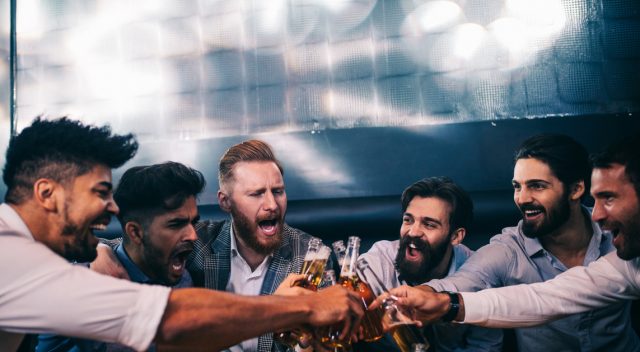Beer category loses female drinkers as gender inequality prevails
The brewing sector has taken backward steps in gender equality and representation with new research showing fewer women think beer is for them, compared to five years ago.

The findings, gathered by women’s collective Dea Latis, have been published in its report ‘The Gender Pint Gap: Revisited’ which follows on from the inaugural ‘Gender Pint Gap’ research which was first published in 2018.
Speaking exclusively to the drinks business about the data, gathered by YouGov, report author and beer sommelier Annabel Smith said: “When we set out to conduct a further piece of research into women’s attitudes and behaviours towards beer in Great Britain, we were fairly optimistic that the dial would have moved in a positive direction since the first Gender Pint Gap.”
Smith said she had hoped that, by now, “socio-economic and cultural factors would surely have played a hand in changing and shifting women’s opinions about beer in the five years since the last tranche of research was conducted” but pointed out that the beer industry has lagged behind other drinks when it comes to diverse representations of gender in both beer marketing as well as brewing circles.
She explained: “All other drinks categories appear to have closed the gap and successfully positioned their products as gender-neutral (think gin, rum, wine, cider). However, as the YouGov poll illustrates, beer hasn’t been on the same journey. There are still multiple challenges for many women about beer: perceptions about what it is and what they think it tastes like, the type of person they believe consumes it, the perceived negative health implications associated with it, and a societal stigma about beer drinking women.”
The report, which drilled down to what women like and dislike about beer, also investigated the barriers to women drinking beer and took another look at women’s deep-seated beliefs, attitudes, and opinions about beer to learn much more than any other research being conducted.
The findings also identified what women think the industry could do to overcome these challenges and explored changes in women’s attitudes and beliefs about beer to assist the industry to move discussions forwards when it came to representation and targeted marketing.
Smith told db that the report was not simply an exercise in reflecting drinker data, but a genuine insight into the factors limiting beer’s relevance in women’s lives.
Partner Content
She explained: “It wasn’t good enough to just produce a set of statistics comparing male and female attitudes towards beer. It wouldn’t have served any purpose for anyone, and it was important for us to deconstruct the data by age, region, occupation, status. We wanted to find out why women were answering the questions the way they were, what or who was influencing their behaviour, and how their attitudes were being shaped.”
Smith lamented that “there has been very little academic research done in this field, but we uncovered a wealth of anecdotal evidence perpetuating the ideology that beer is for men. And when this is in your face every single day, you start to believe it.”
The mission of the research, and the subsequent report, according to Dea Latis has been to identify where there are opportunities for change, and to “formulate potential solutions to address the gender disparity within the beer landscape”. But, this insight needs to be actioned by breweries and beer brand owners to set beer back on a path towards equality.
Smith highlighted how “with each of the topics in the report, we looked at the challenges and barriers for British women trying to navigate the beer world” and explained that Dea Latis “came up with a simple 10-point manifesto designed for both trade and consumers” and said: “It’s just about shifting perceptions through small actions and behaviours.”
The guidance, Dea Latis has highlighted, is applicable for both trade and consumers and “for the beer sector, implementing and adopting this manifesto makes sense commercially – it attracts a whole new audience of consumers who have been traditionally alienated by conventional tropes,” said Smith, who added: For consumers – especially women – it makes the beer category more inclusive, accessible, and acceptable as a drink of choice”.
For a deeper look into the findings and further suggestions on what can be done to assist the sector, read more here.
Related news
Scientists find smartphones can detect off-flavours in beer
Why indie beer is fighting for ‘survival’ against global breweries




